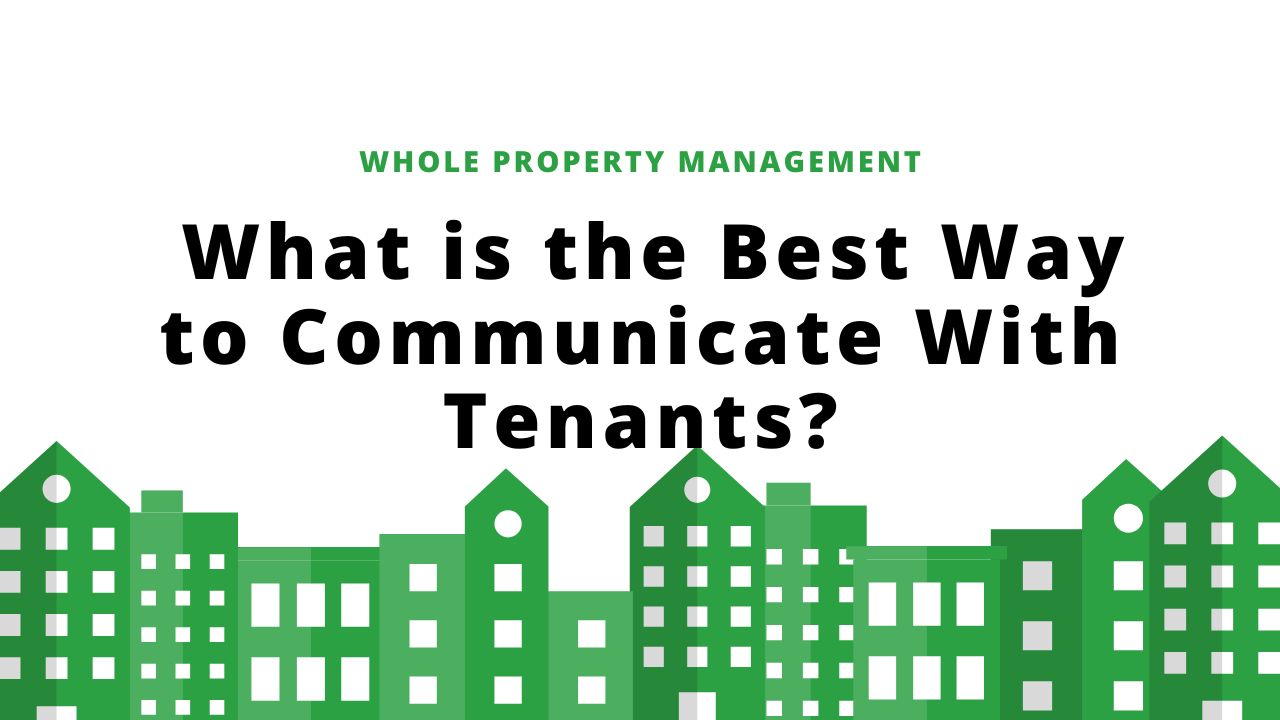What is the Best Way to Communicate With Tenants?

Communication has never been easier. You can choose from a broad range of options on how they can pass along a message. But a wide range of choices always brings about a paradox, especially when there are preferences, regulations, and issues of formality.
As a landlord, you will have to choose between calling, texting, or emailing your tenant about various tenant issues. Given the scenario, knowing which method to use is crucial to tenant retention and satisfaction.
Calling
There will come a time when you will need to get on a call with your tenant. While they might have a sweet voice or be a good conversationalist, we recommend that you limit phone calls to:
- Emergencies: An emergency on the property will require that you get in touch as quickly as possible with your tenant.
- Reminders: A tenant might have forgotten to pay a utility bill or might have violated a clause in the lease agreement. Before escalating the issue, a friendly phone call can go a long way.
- Information seeking: Texts and emails at times lack that friendly and personal touch. If you are seeking personal information from the tenant, we recommend that you make a phone call.

How should you go about it?
Always be professional when you are calling your tenants. It would be ideal to go straight to the point. Avoid being too friendly and familiar. Also, you should be very clear and unambiguous. And unless it is an emergency, only call during business hours.
You might find that your tenant has missed one or two of your phone calls. Don’t be frustrated all at once. They might be busy. Leave a voicemail for them and don’t bombard them with eight missed calls.
Texting
In this era of speed, texts are one of the sure ways of communicating with your tenants. They are bound to open and read within the first few minutes of being received. Most importantly, your tenant can’t say that the text message went to their spam folder.
Advantages of using texting:
- Universal way of communication: Even if a tenant doesn’t have a smartphone, they will still see your message.
- The convenience that it offers allows you to communicate almost instantaneously with your tenants.
Before you start texting your tenants, there should be a clause that allows for that in the lease agreement. The clause should indicate what type of message they should expect from you and also how often.

It is also important to note that tenants may seek to text you back on important issues on the property. For essential matters, ask your tenants to respond via email for accountability purposes.
Most jurisdictions don’t recognize text messages as legal documentation or correspondence. Be wary of changing lease clauses and offering discounts on the phone. Such correspondence will not stand in a court of law.
Emailing
Emailing has served as the official and formal way of communication between two parties. The use of email allows you to:
- Communicate pertinent information that affects the lease of the premises.
- Serve your tenants with reminders and invoices such as rent due reminders, tenant invoices, and additional charges.
- It is always important to share important documents via email for safe-keeping purposes. You never know when that one email can save you a fine or win a case in a court of law.
As mentioned before, email serves as official communication between you and the tenant. Therefore, the email should be purposeful and very professional. It should be concise and serve a goal.
In addition, the email should be sent during business hours therefore avoid sending important emails during the weekends or on holidays. A reminder to landlords on the legal standing of emails as legal documentation.

For most of your correspondence, an email will serve this purpose. However, there are outliers that you should consider. For one-time notifications such as tenant evictions, lease violations, and move-out notices, an email won’t do. You might also need to do a printed notification/ order and hand it to the tenant.
Being aware of the unique legal considerations as implied by your local real estate board is important. We recommend that each property owner stays abreast of legal statutes and regulations concerning notices and documentation.
Conclusion
Whether you choose to call, email, or text your tenant is a question that should be handled on a case-by-case basis. There is a time and place to use either of these methods. Using the practical experiences and examples presented above, you are able to use your judgment and approach any issue practically.
Should you feel overwhelmed with the management of your asset, you can get in touch with the leading property management company in Denver, Whole Property Management.
We are a full-service property management company with the experience, resources, and tools to ensure that your property is in good condition all year long. Get in touch with us today.
